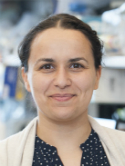| Abstract: |
Identifying colorectal cancer patient populations responsive to chemotherapy or chemoradiation therapy before surgery remains a challenge. Recently validated mouse protocols for organoid irradiation employ the single hit multi-target (SHMT) algorithm, which yields a single value, the D0, as a measure of inherent tissue radiosensitivity. Here, we translate these protocols to human tissue to evaluate radioresponsiveness of patient-derived organoids (PDO) generated from normal human intestines and rectal tumors of patients undergoing neoadjuvant therapy. While PDOs from adenomas with a logarithmically expanded Lgr5+ intestinal stem cell population retain the radioresistant phenotype of normal colorectal PDOs, malignant transformation yields PDOs from a large patient subpopulation displaying marked radiosensitivity due to reduced homologous recombination-mediated DNA repair. A proof-of-principle pilot clinical trial demonstrated that rectal cancer patient responses to neoadjuvant chemoradiation, including complete response, correlate closely with their PDO D0 values. Overall, upon transformation to colorectal adenocarcinoma, broad radiation sensitivity occurs in a large subset of patients that can be identified using SHMT analysis of PDO radiation responses. SIGNIFICANCE: Analysis of inherent tissue radiosensitivity of patient-derived organoids may provide a readout predictive of neoadjuvant therapy response to radiation in rectal cancer, potentially allowing pretreatment stratification of patients likely to benefit from this approach. ©2022 American Association for Cancer Research. |
















